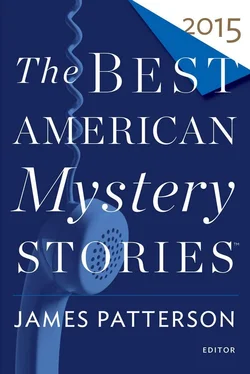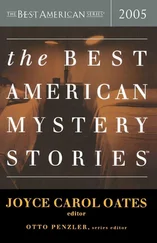• A number of years ago I started a novel that never got off the ground. One of the characters from that book, a security guard living in a skid-row hotel, stuck with me, and one day I started writing about him again. That story eventually became “Apocrypha.” So, in the end, something positive came out of that earlier failure. There’s a lesson in there somewhere.
“Apocrypha” is a story about an invisible man engaged in a life-and-death struggle in a place most of us pass through — car doors locked, windows rolled up — as quickly as possible on our way to somewhere else. It’s these men and these places that fascinate me and that I keep returning to in my work. In this milieu, people live so close to the edge that the smallest misstep can be ruinous or even fatal. Just thinking about it scares me, and what scares me inspires me. I’m glad that I got to save the lost soul in “Apocrypha.” I only wish that I could save them all.
Dennis Lehanegrew up in Boston. Since his first novel, A Drink Before the War , won the Shamus Award, he has published eleven more novels, which have been translated into more than thirty languages and become international bestsellers: Darkness, Take My Hand; Sacred; Gone, Baby, Gone; Prayers for Rain; Mystic River; Shutter Island; The Given Day; Moonlight Mile; Live by Night; The Drop; and his most recent book, World Gone By. Lehane was a staff writer on the acclaimed HBO series The Wire and a writer-producer on HBO’s Boardwalk Empire.
Three of his novels — Mystic River; Gone, Baby, Gone; and Shutter Island — have been adapted into award-winning films. In 2014 his first screenplay, The Drop , based on his short story “Animal Rescue,” was produced as a feature film starring Tom Hardy and James Gandolfini in his final role.
Lehane and his wife, Angie, currently live in Los Angeles with their two children, a fact that never ceases to surprise him.
• As I remember it — and a writer’s memory is about the last person’s you should trust — Michael Connelly and I were approached by Steve Berry about a unique collection of stories he envisioned. We’d take our series protagonists and have them work together, which would mirror Michael and me working together. Michael said he couldn’t imagine Patrick Kenzie in L.A., so he thought it best and more believable if Harry Bosch were led to Boston on official business. So Michael took pole position and started the story with Harry arriving on the East Coast. At some point he and Bosch reached the place where Bosch’s path crossed with Patrick’s, and that’s where I jumped in. From there, I can’t explain how we decided when and where we’d toss the potato back into the other’s hand, but making prose is a lot more like making music than laypeople suspect, and a lot of riffing between successful collaborators happens organically. The whole experience, in retrospect, was a lot more fun than it had any right to be. Maybe the story reflects that. I hope it does, anyway.
Theresa E. Lehris a scuba diver and educator and has published in Alfred Hitchcock’s Mystery Magazine and in Texas Magazine of the Houston Chronicle.
• Years ago, while six months pregnant and traveling Down Under with my children and husband by camper van, we stopped at a roadside park next to a rushing stream. Within moments a motorcyclist, dressed completely in black leather, pulled up next to us. Once the rider removed her helmet, I realized she was a young woman. Her independent spirit fascinated me, and she was the inspiration for my main character.
I have been a scuba diver for thirty years. Near-drownings, bad air, faulty equipment, and poor decision-making have given me a mighty respect for the power of the sea. However, nothing can keep me from exploring the wonders of the ocean whenever possible. After watching a show about the pearling industry in Western Australia, I knew I had to write this story.
Family dynamics can be such a complicated universe. Having three brothers, I found it only natural to make sibling rivalry and competition a main component of “Staircase to the Moon.” I chose estranged twin sisters for a dark twist. The twins are of Japanese descent to connect them to the immigrant Japanese who brought pearl diving to Australia. Writing about the tensions between the family members gave me the opportunity to explore jealousy, resentment, forgiveness, and reparation without having to interact with any of my own family. Great fun.
And last, pearls and Japan? I was born in Japan and have always coveted my mother’s strand of cultured pearls she bought in 1955.
Lee Martinis the author of the novels The Bright Forever , a finalist for the 2006 Pulitzer Prize in Fiction, River of Heaven, Quakertown , and Break the Skin. He has also published three memoirs, From Our House, Turning Bones , and Such a Life. His first book was the short story collection The Least You Need to Know. He is the winner of the Mary McCarthy Prize in Short Fiction and fellowships from the National Endowment for the Arts and the Ohio Arts Council. He teaches in the MFA Program at Ohio State University, where he is a College of Arts and Sciences Distinguished Professor of English and a past winner of the Alumni Award for Distinguished Teaching.
• “A Man Looking for Trouble” began, as my stories sometimes do, with a narrator’s voice that I heard one day while I was out for my morning run. I remember hearing the line “My uncle was a man named Bill Jordan.” Immediately I wondered who was speaking and why his uncle’s presence made it urgent that he tell this story. I often write from a point of curiosity. I try to complicate that curiosity while moving the story forward but never quite answering all the questions that are there to be answered. In that way, I’m like the reader with anticipations and expectations and a reason to keep moving forward. When I got home from my run, I wrote the sentence “My uncle was a man named Bill Jordan, and in 1972, when I was sixteen, he came home from Vietnam, rented a small box house on the corner of South and Christy, and went to work on a section gang with the B & O Railroad.” Later, after the story’s interests had announced themselves to me in the first draft, I added the second sentence, about the narrator’s mother’s romance with Harold Timms, and just like that I had two threads to follow. By this point I also knew why this story mattered so much to my narrator. I wanted to place the innocence of his love for Connie alongside the ugliness of the adults’ lives. At the end of the story, my narrator knows that he and Connie are now helpless in a world run by the adults. “A Man Looking for Trouble” is a story about what ruins us. Above all, it’s a story about those moments when love might save us if only we’d let it.
James Mathewsgrew up in El Paso, Texas, and now lives in Maryland. He is a graduate of the Johns Hopkins University Masters in Arts Program. His fiction has appeared in numerous literary journals, including Painted Bride Quarterly, Iron Horse Literary Review, The Florida Review, Northwest Review, The Wisconsin Review, The South Carolina Review, Carolina Quarterly , and many more. His short story collection, Last Known Position , received the 2008 Katherine Anne Porter Prize in Short Fiction. He is also a retired air force chief master sergeant who has served overseas numerous times, including two tours in support of Operation Iraqi Freedom (in 2003 and 2006). He is currently at work on a novel.
• As an Iraq war veteran who has depended on the “band of brothers” mentality during hazardous deployments, I have always been intrigued by that rare breed of serviceman who willingly rejects the bonding process and instead isolates himself from comrades. It struck me as a defense mechanism, albeit one that was starkly counterintuitive. “Many Dogs Have Died Here” is my attempt — with a dash of mystery and absurdism — to better understand the self-exiled warrior in a postwar setting who must ultimately account for his isolation and face the grief and loss from which there is no hiding.
Читать дальше












